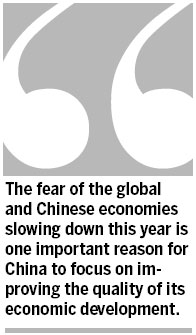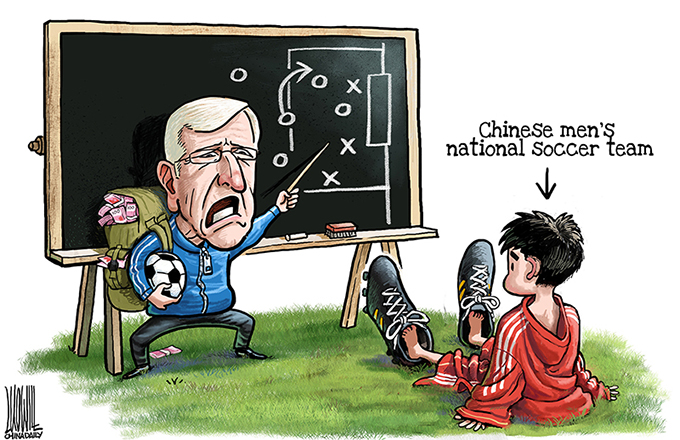China's year of challenges

The tottering global economy and slowing growth rate at home make it important to transform economic development model
The decision of the 2013 Central Economic Working Conference is to raise the quality of economic growth and make it more result-oriented by focusing on "six musts".
The first is expediting economic restructuring. The second is transforming the pattern of economic development to ensure that it is based on expanding domestic demand. The third is continuing to work effectively on agriculture, rural areas and farmers, as well as advancing urban-rural integration. The fourth is continuous implementation of the strategy to invigorate China, and boost its economic and social development. The fifth is prioritizing people's interest above everything else and working tirelessly for people's well-being so that development benefits reach the whole nation in a fairer manner. And the last is deepening reform in an all-round way, clearing obstacles in the system that hinder development, proactively implementing the opening-up strategy and creating a competitive edge.
The key to fulfilling the "six musts" lies in handling the relations between steady economic growth in the short term, economic restructuring in the intermediate term and systematic transformation in the long run.
The prospect of global economic growth, however, remains troubling in 2013.
First, the global economy will continue to grow slowly this year, for it has not fully recovered from the global financial crisis of 2008. For example, the International Monetary Fund had forecast that the global economic growth rate in 2012 would be 3.3 percent, the lowest since 2009, and lowered China's and India's growth rates to 7.8 percent and 4.9 percent.
Purchasing manager indexes across the world, particularly in the European and American economies, are mostly below 50 percent, also the lowest since June 2009. This raises two questions: Will the growth rate of 3.3 percent forecast for the global economy and 7.8 percent for China become constant in 2013? And how long will the rates last?
The fear of the global and Chinese economies slowing down this year is one important reason for China to focus on improving the quality of its economic development by handling the relations between stable growth in the short term, and expediting economic restructuring in the intermediate-to-long term. Fundamental to all this is the deepening of reform.























